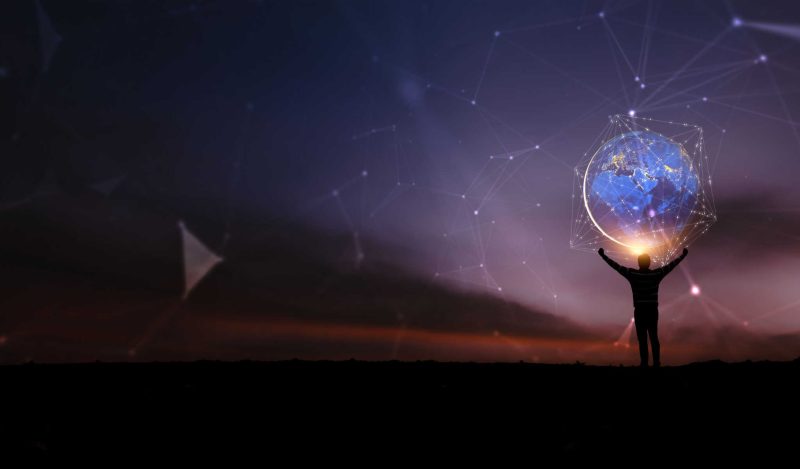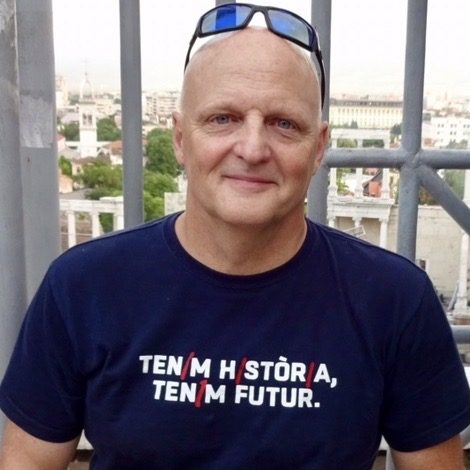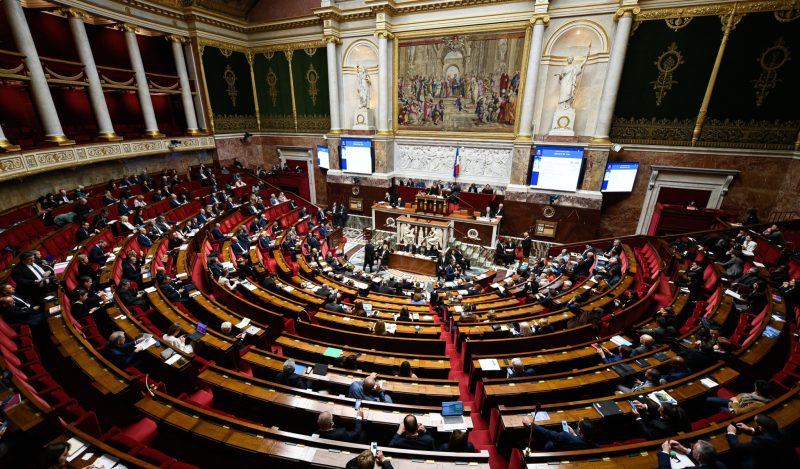Sadly, there are few people today who openly refer to themselves as anti-imperialists. Among those of us who do, we spend most of our time and energy trying to make others aware of the enormous destruction of human life that is being done in their name, with their money and, last but not least, with their tacit support. And this is as it should be.
But the pursuit of this primary goal should not and cannot blind us to another key issue: imperialism’s enormously toxic effects on the psychic and cognitive health of the empire’s home-borne population.
At the core of all imperial efforts is dehumanization; that is, the idea that some human lives are inherently much more valuable than others. For example, I can’t count the number of times I have heard someone—as part of their justification of the brutal actions of the US (or those of a power closely allied with our country)—say about the people on the receiving end of our destructive actions some variation of “For them life is cheap. And because of this, we must be nasty to them as force is the only thing they understand.”
I’d love to ask the mother and father of someone brutalized or killed under the influence of this breezy disqualification of the fundamental value of human life if they really thought their offspring’s life was “cheap,” or that he or she was congenitally unable to enter into reasoned discussions regarding issues of conflict with others. I doubt they would agree. Rather, they would probably suggest they were simply doing their best to preserve their dignity and possessions in the face of outside forces seemingly bent on taking those things away.
The truly tragic thing about all this is that once you commit to doing or supporting violence under the rubric of this mental contrivance, it is very, very hard to turn back because doing so means admitting that you are much less morally pristine than you like to imagine yourself to be. It means admitting that you are “fallen” and thus in probable need of self-reflection and behavioral reinforcement from historically ratified sources of ethical learning.
Doing this has always been difficult. But it is harder to do today owing to what the German-Korean philosopher Byun Chul Han, in his short but masterful The Disappearance of Rituals (2022) refers to as the cult of authenticity, wherein we are encouraged to see ourselves as wholly autonomous beings whose prime life goal is generating an outward-facing “performance” designed, in keeping with the demands of consumer capitalism, to see ourselves as being absolutely unique, forward-looking and, above all, economically “productive.”
Reflection? Engagement with longstanding rituals that underneath their pomp and seemingly stale banal repetition are designed to make us ask big questions about who we are and want to be as friends, children, parents, neighbors and citizens.
Sorry. No time for that. The productivity train is always moving and if I don’t get on it and sell my wares, someone else might and reap the benefits. And then I’ll turn into an ontological nobody.
It is owing to this generalized inability to engage in self-reflection that the imperial citizen in a consumer culture frequently becomes a compulsive dissembler who, over time and out of a very real need to stamp out the ever-looming threat of cognitive dissonance in his life, often passes little by little into a state of full-blown delusion.
He is asked, “Did the US really destroy Iraq, Libya and Syria for no palpable reason, causing misery and death for millions?” “No, we did it for democracy,” he says. And when the questioner follows up with something like “And are they thriving democracies now?” or “Have we rebuilt those countries after destroying them?” he more often than not responds by getting irritated and trying to change the subject.
On some level he knows that the actions of his country have killed and maimed millions for no good reason. But he also knows that if he stops and takes the time to truly contemplate what he as a silent or outright “troop-supporting” citizen has really been party to, he might have to question a lot of other things in his life. And that can’t be allowed to happen as it would have a truly damaging effect on his one-man drive to prop himself up as a productive “winner” within the system.
So, as with Pinocchio, this dynamic leads to the telling and believing of ever more preposterous lies. Indeed, we now live in a veritable festival of tragi-comic storytelling of this type.
Take, to cite just one of thousands of possible examples that could be adduced, the recent blowing up of the Nord Stream pipeline, and the idea, widely circulated in the American and European media, that the Russians were behind the attack.
Anyone who has done a cursory reading of Russian history knows that since the time of Peter the Great, Russian elites have been obsessed with tying their destinies to the rest of Europe, and that it has been the countries of Western Europe (and later the US) that have never been willing to grant Russia the much desired seal of cultural parity and legitimacy. You would also know that from the end of communism until 2008—when the eastward movements of NATO toward its borders became too obvious to ignore—Russia did everything in its power to finally make that long-desired convergence take place, and that they viewed Nord Stream as a key means of insuring that this would occur, and would also generate revenues for Russia and its continuing reindustrialization.
In the face of all this—and repeated US statements about its deep concern about the pipeline and repeated and none-too-subtle statements about its desire to disrupt it—we are being asked to believe that it was Russia that did the deed. And rather than laugh at the Pinocchio-on-steroids nature of this assertion, many believe it, or at the very least, say nothing about its rank preposterousness because they fear that doing so would lessen their social capital and hence, image as right-minded and members of the social machine.
As Vonnegut memorably said, “So it goes…”
Those involved in the fight against the grotesque encroachments on our liberties by the burgeoning bio-security state are—and I include myself in this—habitually confounded and outraged by our fellow citizens’ inability or unwillingness to see what is taking place right before their eyes.
Without losing sight of our goals and our desire to create a society rooted in the search for the truth, perhaps we need to acknowledge how, as citizens of a world-spanning empire that routinely breaks and severely damages other societies on the flimsiest of pretexts through military and financial predation, we have been serially asked to engage in what I’ve come to call “strategic forgetting,” and how this has affected our ability to respond mindfully to social challenges.
I know there are many who won’t like what I’m going to say, but how different on the level of cognitive slights of hand is calling the soldiers who destroyed Iraq, and Afghanistan and left them in ruins “heroes fighting for freedom” on the one hand, and believing that vaccines that never were designed to stop transmission, were and are essential to ending the so-called pandemic and keeping us all safe on the other?
And while we’re at it, do you really think there is no connection between the constant government and press efforts to demonize certain ethnic groups during the so-called “War on terror” and the aforementioned invasions of various countries, and the ease with which so many people turned on their fellow citizens when given cues to do so by the government and its captured press?
To be asked time and again as citizens of an empire to forget and not see has a cancerous effect on a culture over time. In our busyness, unbroken by the rituals that were once there to remind us to reflect and remember, we tend to obviate an important reality: that generating new moral frames to challenge the “realities” that the powerful constantly seek to impose upon us is, in the first instance, always an act of imagination.
And as the Portuguese writer António Lobo Antunes, himself a veteran of the bloody and failed Portuguese imperial wars in Africa in the 1960s and 70s, once said: “The imagination is fermented memory. When memory is lost, so too is the ability to imagine.”
For roughly a decade, between 1968 and 1978, we as a society made an effort to remember which led oh-so-briefly to the ability to imaginatively rehumanize those that we had been taught to hate, a transformation perhaps best symbolized by the widespread circulation in our society of the picture of the young unclothed Vietnamese girl, Kim Phuc Phan Thi, running in terror from a US napalm attack on her village.
But since those brief years of relatively intense moral self-interrogation, we’ve been doing a pretty good job of seeing and remembering what they want us to see and remember, and forgetting most everything else. They said there’ll be no more pictures of war victims like Kim Phan Thi on your screens and in your newspapers. And we collectively said, “Thanks for saving us from the angst that such images might generate in our minds.”
Perhaps it is time to admit that much of what occurred during the acute phase of the Covid crisis was, in many ways, the culmination of a long multi-decade process of intense, top-down social pedagogy designed to separate us from our most basic empathic instincts.
Have we turned the corner? I can’t say.
We’ll have some sense that we’re on the right track when, instead of suggesting to us that we tailor our free and untamed language and actions to the task of actually and metaphorically garnering “likes,” our children and grandchildren begin once again to ask things like “Why are those people angry and sad?” and “What can we do to make them feel better?”
Published under a Creative Commons Attribution 4.0 International License
For reprints, please set the canonical link back to the original Brownstone Institute Article and Author.









